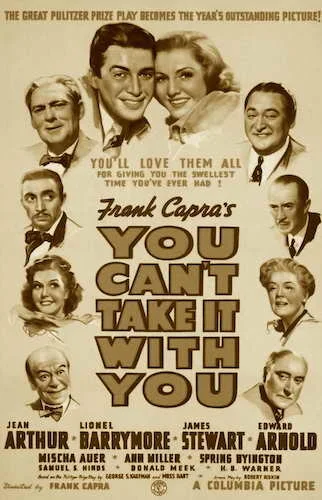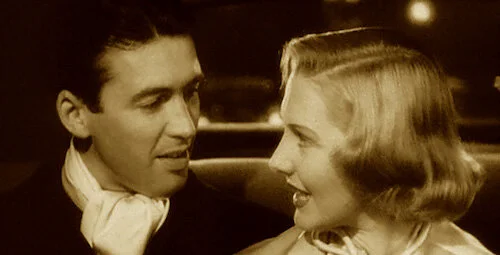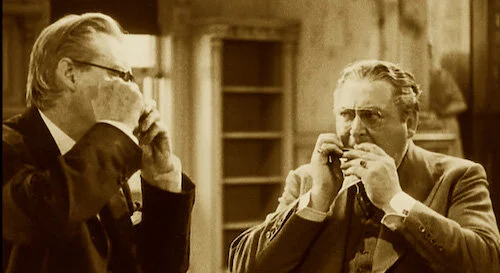You Can't Take It with You
This review is a part of the Best Picture Project: a review of every single Academy Award winner for the Best Picture category. You Can’t Take It with You is the eleventh Best Picture winner, and won at the 1938 Academy Awards ceremony.
A Frank Capra film about class struggles? You don't say! It's strange how You Can't Take It with You is one of Capra's less defining classics, especially since it won Best Picture alongside It Happened One Night (which is still revered). You Can't isn't a particularly bland film in any way. In fact, I'd argue it's quite a pleasant and endearing film. I feel like Capra's stronger efforts have aged better with time, and have pushed away some of his then-adored works. Think about it: It's a Wonderful Life was received less favourably than this film was when either film was released. His most celebrated picture was more divisive than the Best Picture winning film that non Capra fanatics may have never even watched (or heard of).
It's hard to discuss You Can't in great depth without sounding like a broken Capra-scholar record. It's exactly what you would figure with his works: slapstick and screwball comedy tossed into a political statement about the struggling working class, underneath powerhouse performances, and an appearance by Jimmy Stewart. It's all here. That's not even a problem, either. It's just hard to advocate this film and convince people to check this Capra work before his other better projects. Now, if you are already familiar with his classics, then You Can't is an excellent next pick for you to watch.
Jimmy Stewart and Jean Arthur as two lovers from completely different walks of life.
In You Can't, we have two opposing families: the wealthy Kirby family, and the oddball, middle class Sycamore gang. The Kirbys dress well, have money on the mind, and are always thinking about the next move. The Sycamores make a lot of noise, dance frantically, and have a great time with each other. The Kirbys are buying out a whole neighbourhood to compete with a rival company. The Sycamores don't want to leave. Suddenly, as if his name were Fate Capra, a Kirby son (Tony, played by Stewart) falls in love with a Sycamore daughter (Alice, played by Jean Arthur). Tony is less business oriented than his folks, and Alice is more put together than the rest of her family.
We suddenly have a Romeo and Juliet type deal here: the disapproval of loved ones, and the justification of love. Don't worry. This film doesn't get that dark, but it does get rather deep with its message. The title comes from a line in the film, as a reminder that we cannot bring worth into the grave and to wherever we go once we die. We can only close our eyes, and be soothed by the wonderful memories that led up to our final hour. Once these two starkly different worlds begin to collide, Capra uses these moments to offer both sides reality checks. As funny as You Can't may be, it's awfully sincere as well.
The fathers of the Kirby and Sycamore families not seeing eye-to-eye.
As a Frank Capra film, it isn't the worst place to start if you want to discover the rest of his filmography. It follows all of his usual criteria, and is just a pleasant and entertaining film throughout. It may not scream "Best Picture winner" today, likely because we've seen Capra do even better than this. It's still absolutely worth a watch, though. You Can't Take It with You is just a caring, reasonably smart, and warm offering from one of early cinema's great household directors. Plus, it never hurts to see character development in the form of a shifting moral compass. You really cannot go wrong with this film.
Andreas Babiolakis has a Masters degree in Film and Photography Preservation and Collections management from Ryerson University, as well as a Bachelors degree in Cinema Studies from York University. His favourite times of year are the Criterion Collection flash sales and the annual Toronto International Film Festival.






